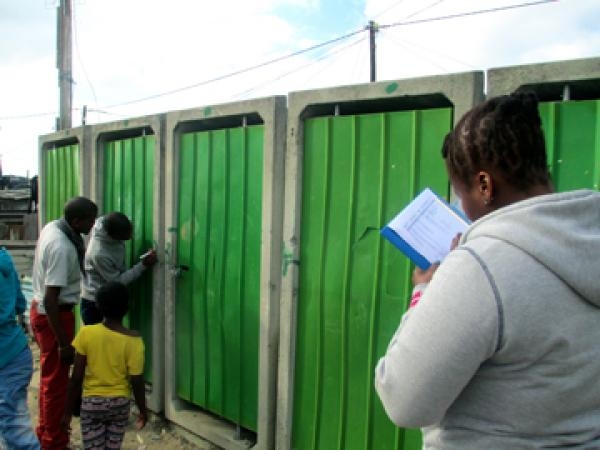Sanitation: SJC’s analysis is faulty

The Social Justice Coalition (SJC) has asked the Mayor for a plan to deal with sanitation in informal settlements. We have a plan – one that has already been and continues to be implemented as part of this administration’s commitment to making this a city that delivers services to all our residents. Perhaps that is why so many people flock here from other parts of the country every year. After all, no one packs up their family and leaves their hometown for a worse life!
The SJC’s analysis is faulty in that it did not identify all of the sources of funding to service informal settlements, not even all those for sanitation.
In this financial year, the capital spend as of 30 March for the Informal Settlements Unit in the Water and Sanitation (W&S) Department is R7,3 million, with a further R13,7 million committed. The operational budget for the same unit for this year is R306 million, of which R172,5 million has been spent so far – R137,8 million of which was on sanitation as at 30 March 2015.
The operating spend for the previous financial year for W&S for the Informal Settlements Unit was R210,4 million, of which R192 million was for sanitation alone.
The article mentions that the City spends only a small share of its W&S capital budget in informal settlements. To clarify, direct capital expenditure in informal settlements is limited mainly to installation of full-flush toilets. Compared with other W&S infrastructure, this is not expensive. The cost of the installation of taps is also relatively low, depending where the closest connection point is. With over 9 850 taps and 46 840 toilets installed or provided already, the potential for further installations is reduced year on year, given that infrastructure appropriate to local conditions has already been provided.
Provision of services to informal settlements is managed under the Reticulation Branch within W&S. It is incorrect to divide this expenditure by the total W&S operating budget. All other branches’ operating budgets contribute in part to the services in informal settlements. For example, the budget for getting water to, and wastewater from, full-flush toilets in informal settlements costs in the region of R170 million a year – a figure which does not include the cost of wastewater disposal from other toilet types, and is not reflected in the budget of the W&S: Informal Settlements Unit.
Sanitation in informal settlements has been provided to best suit the specific circumstances. Density, ownership and location are just some of the complexities that need to be considered. With the City’s reblocking programme, permanent solutions can be found, but not all areas are suitable for reblocking. After careful consideration and calculation, we believe that the capital budget for informal settlement sanitation is sufficient for what can currently be achieved.
As highlighted by the SJC, the City is implementing bulk infrastructure. The reports used by the SJC would not likely include the bulk water and reticulation infrastructure necessary to supply water as well as the same infrastructure necessary to move and treat the wastewater. In addition, these reports will not reflect the production and reticulation cost of delivering the water to and removing the wastewater from the specific areas. For 2015/16, the cost to be recovered per kl amounts to R12,15/kl for water and 12,14/kl for sanitation.
Over and above provision under the W&S Department, the Human Settlements Directorate provides sanitation top structures (full-flush, chemical etc.) to any settlement that is part of a reblocking or upgrade programme, as well as Temporary Relocation Areas, and to low-cost formal housing developments. For these developments, W&S provides bulk services which are often reflected outside of the W&S budget.
The SJC implies that the City of Cape Town’s budget is not pro-poor. This is incorrect. In fact, 46% of our W&S capital expenditure of R1,257 billion and 45,78% of our W&S operating expenditure of R6,938 billion is spent on poorer areas.
Alderman Ian Neilson is the Executive Deputy Mayor in the City of Cape Town and the Mayoral Committee Member for Finance. Views expressed in opinion pieces are not necessarily those of GroundUp.
Support independent journalism
Donate using Payfast

Don't miss out on the latest news
We respect your privacy, and promise we won't spam you.
Next: Violence in Khayelitsha
Previous: Long wait for Motsepe money

This article is licensed under a Creative Commons Attribution-NoDerivatives 4.0 International License.
